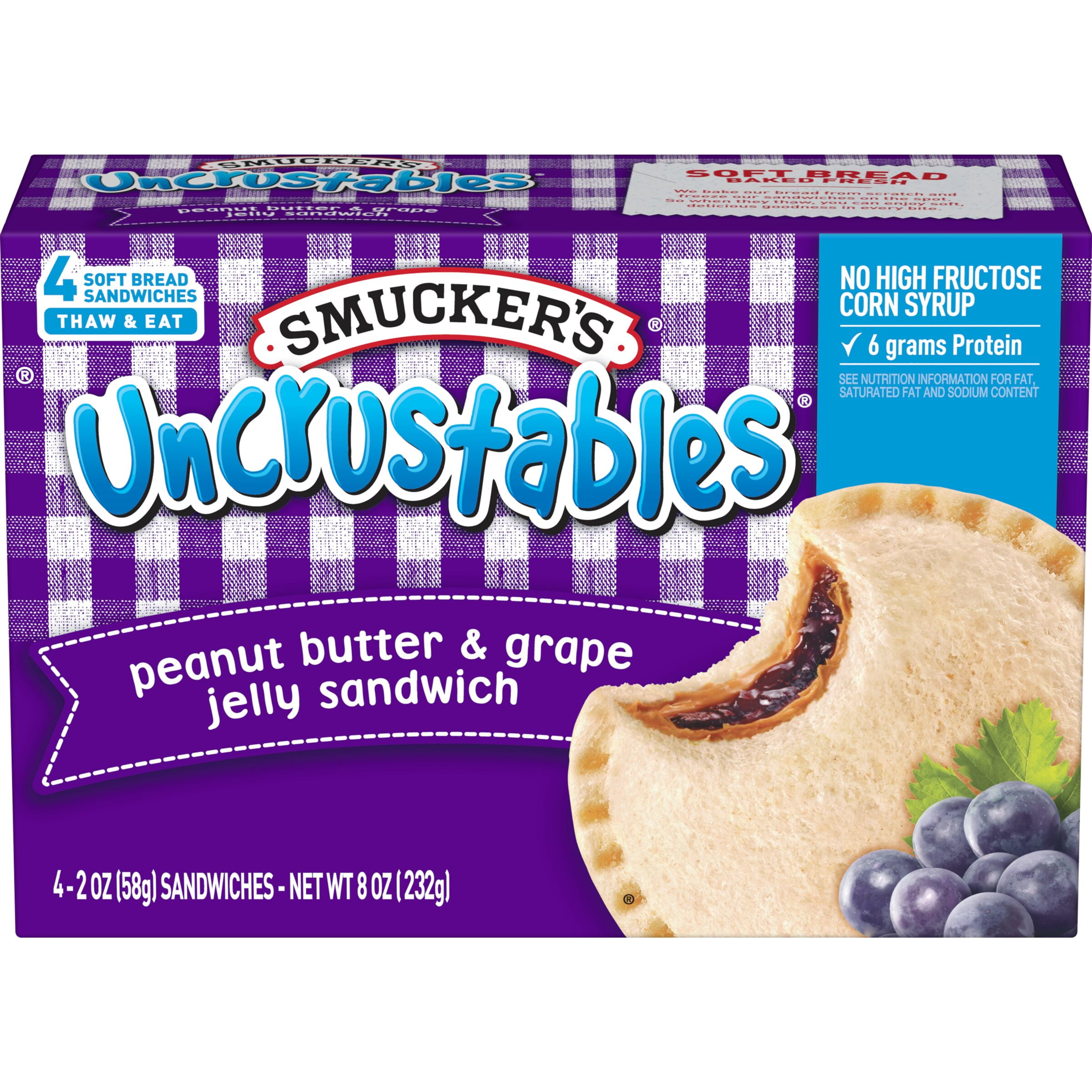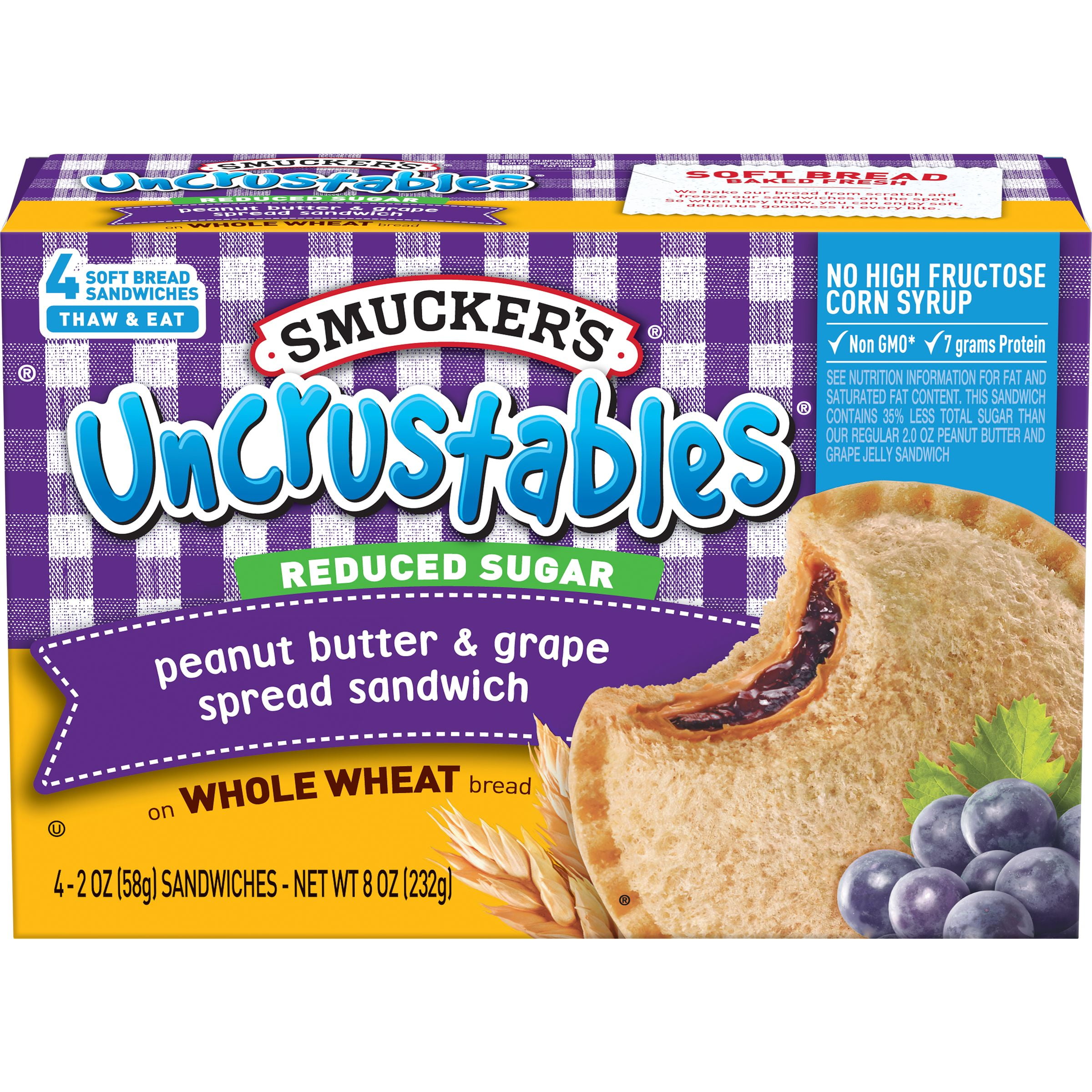Uncrustables Banned - What's The Real Story?
Rumors flying about Uncrustables being off limits in the United States have certainly gotten a lot of people talking, you know, causing quite a stir for anyone who enjoys these quick little sandwiches. This talk, which started with a social media post, made many wonder if their favorite grab-and-go snack was really going away for good, so. It felt like a sudden change for something so many families rely on for quick meals, you know.
The chatter, initially suggesting a ban was coming into effect very soon, really highlighted how much these small, round sandwiches are a part of daily life for a lot of folks, especially those needing a fast food option, in a way. People were, quite understandably, curious and maybe a little worried about what this might mean for their lunch routines or after-school snack times, you know. It just goes to show how much we count on certain convenient items to make our days run a little smoother, doesn't it?
This whole situation, really, brings up some bigger questions about what we eat and the rules around food, especially for those convenient items we rely on every day, you know. It makes us think about where our food comes from, what's in it, and who decides what we can and cannot buy at the store, so. The discussion isn't just about one type of sandwich; it's about the broader conversation around food choices and what might influence them, you know, making it a topic many people care about, basically.
Table of Contents
- What's the Fuss About Uncrustables Being Banned?
- Why Are Some People Talking About Uncrustables Banned From Places?
- What Happens If Uncrustables Are Banned for Good?
- Are There Other Snack Foods That Could Be Banned Too, Like Uncrustables?
- What's the Real Deal with Uncrustables and Their Ingredients?
- How Popular Are Uncrustables, and Does That Change Anything About Them Being Banned?
- What Are People Saying About Uncrustables Banned Talk?
What's the Fuss About Uncrustables Being Banned?
The initial chatter, it's almost, came from a post on a social media site, put out by what appeared to be a joke account, pretending to be a well-known public figure, you know, from way back in January of this year. This message quickly spread, causing quite a bit of confusion and concern among people who had grown fond of these simple, pre-made sandwiches, you know. It was a moment where many folks probably paused their scrolling to double-check if what they were reading could actually be true, so.
This post suggested that, quite suddenly, starting on a specific date, these round sandwiches would not be allowed in the country any longer, you know. The idea of a popular food item just disappearing from shelves can be a bit jarring, especially when it's something many rely on for quick and easy meals, you know. It makes you think about how quickly information can travel and how it can affect people's perceptions about everyday things, as a matter of fact.
For a lot of folks, this news felt pretty surprising, especially since Uncrustables have been a familiar sight in lunchboxes and pantries for a good while now, really. They are a staple for busy parents and a favorite for many children, offering a simple solution when time is short, you know. The thought of them being gone might have caused a scramble to think of alternative quick meal ideas, or just a general feeling of "what now?" for those who regularly buy them, you know. It's funny how a little sandwich can hold such a big place in our routines, isn't it?
Why Are Some People Talking About Uncrustables Banned From Places?
It turns out, there are some actual discussions happening about certain ingredients in foods, and this includes some of the things found in Uncrustables, so. These talks are part of a broader look at what goes into our packaged foods and how those components might affect our health over time, you know. It's a conversation that's been gaining more attention as people become more interested in what they're putting into their bodies, you know, making it a pretty important topic for many.
For instance, some countries outside of the United States have already decided that these sandwiches, or at least some of their parts, aren't suitable for sale, you know. This isn't a new thing, as different places have different rules about food additives and processing methods, so. The reasons for these decisions often come down to concerns about specific chemicals or types of fats used to make the food taste good or last longer, you know, which is a bit of a tricky area for food producers.
The reason often given for this is that some elements inside them might have some not-so-good effects on people's bodies over time, in a way. These are the kinds of ingredients that, when consumed regularly, some health experts suggest could contribute to various health issues, you know. It's about a cautious approach to public well-being, choosing to limit exposure to substances that might carry a potential risk, you know, which, honestly, makes a lot of sense to many.
We're talking about things that some consider to be, perhaps, a bit risky for long-term health, apparently. These could be certain types of oils that have been changed in a specific way, or things added to keep the food from spoiling too quickly, you know. The debate often centers on whether the convenience and taste benefits outweigh these potential health considerations, which is a discussion that often happens with many processed foods, you know, not just these sandwiches.
In fact, some grocery stores, like a well-known one that focuses on natural and organic items, have a list of things they simply won't carry, and a few of the ingredients in a typical Smucker's Uncrustables sandwich are on that list, just a little. This means that even without a government ban, certain retailers make their own choices about what aligns with their values and what they believe their customers want, you know. It's a way for them to signal their commitment to a certain kind of food standard, basically.
These include certain types of processed oils and some things used to keep food fresh, which, quite honestly, are just not allowed in those stores, you know. These are the specific items that have been identified as problematic by those particular retailers, making them unavailable to shoppers who prefer to buy from those places, you know. It creates a situation where the same product might be available in one store but not another, purely based on ingredient lists, as a matter of fact.
What Happens If Uncrustables Are Banned for Good?
If these popular sandwiches were to truly become unavailable, there would be some big changes for many families and places that serve food, you know. It would mean a shift in how people plan their meals, especially for those busy mornings or quick lunch breaks, so. The sheer convenience of just grabbing one from the freezer is a major draw, and losing that would definitely be felt by a lot of folks, you know.
Parents, for example, would need to figure out new quick meal ideas for their children, ones that are still simple to put together and good to eat, basically. The time saved by not having to make a sandwich from scratch is a real benefit for many households, you know. So, finding something equally fast, appealing to kids, and easy to pack would become a bit of a challenge for many, you know, adding another task to an already full day.
And schools, along with places where kids spend their days, would also have to come up with other easy-to-serve food items, ones that still meet the various eating needs of lots of kids, as a matter of fact. Uncrustables have been a reliable choice for school cafeterias and daycare centers because they simplify meal preparation and often fit within common dietary guidelines, you know. Replacing that kind of dependable option would require some thoughtful planning and new solutions, you know, to keep things running smoothly.
Uncrustables have been a favorite for these places because they are so simple to hand out and generally fit what many kids can or should eat, so. They offer a pre-portioned, mess-free option that appeals to a wide range of young eaters, making them a go-to for institutions that feed many children, you know. The ease of serving them, without needing to cut crusts or worry about spreading fillings, is a significant advantage in busy environments, you know, making them a practical choice for many.
The convenience factor is really a big part of their appeal, making life a little easier for busy people, you know. For those who are always on the go, or who have limited time for meal prep, these sandwiches offer a quick fix that doesn't require much effort at all, so. This ease of use is what makes them so popular, and it's what would be missed most if they were no longer available, you know, causing a ripple effect on daily routines for many.
Are There Other Snack Foods That Could Be Banned Too, Like Uncrustables?
This whole discussion about what's in our food isn't just about Uncrustables, you know. There's a broader conversation happening about various snacks and drinks that contain certain ingredients, you know, that some people are concerned about. It seems that more and more, people are looking closely at the labels on their food and asking questions about what they're consuming, so. This interest is driving a wider public discussion about food standards and what should be allowed on shelves, you know, for everyone to buy.
For instance, there's talk about some well-known sports drinks potentially needing to change their recipes if they want to keep being sold in certain areas, as a matter of fact. These are drinks that many athletes and active people consume regularly, and the idea that they might need to be reformulated shows how widespread these ingredient concerns are, you know. It highlights that even popular, widely accepted products can come under scrutiny when new information or public opinion shifts, you know, which is something to consider.
And some political figures have expressed strong feelings about what they call "chemical poisons" in everyday treats like chips and candy, suggesting they might want to see those things removed from our food choices, in a way. This shows a more forceful stance on food regulation, where some believe that certain additives are harmful enough to warrant removal from the market altogether, you know. It's a view that takes a much firmer approach to what food companies can offer, apparently, which is a different way of thinking about things.
Some states, too, are taking steps on their own, like California, which recently passed a law to stop certain food colorings from being used in school foods, you know. This is a specific example of local action being taken to address ingredient concerns, focusing on the foods given to children in educational settings, so. It

Smucker's Uncrustables Peanut Butter & Grape Jelly Sandwich, 4-Count

How to Make Frozen Uncrustables | MOMables

Smucker's Uncrustables Reduced Sugar Peanut Butter and Grape Spread